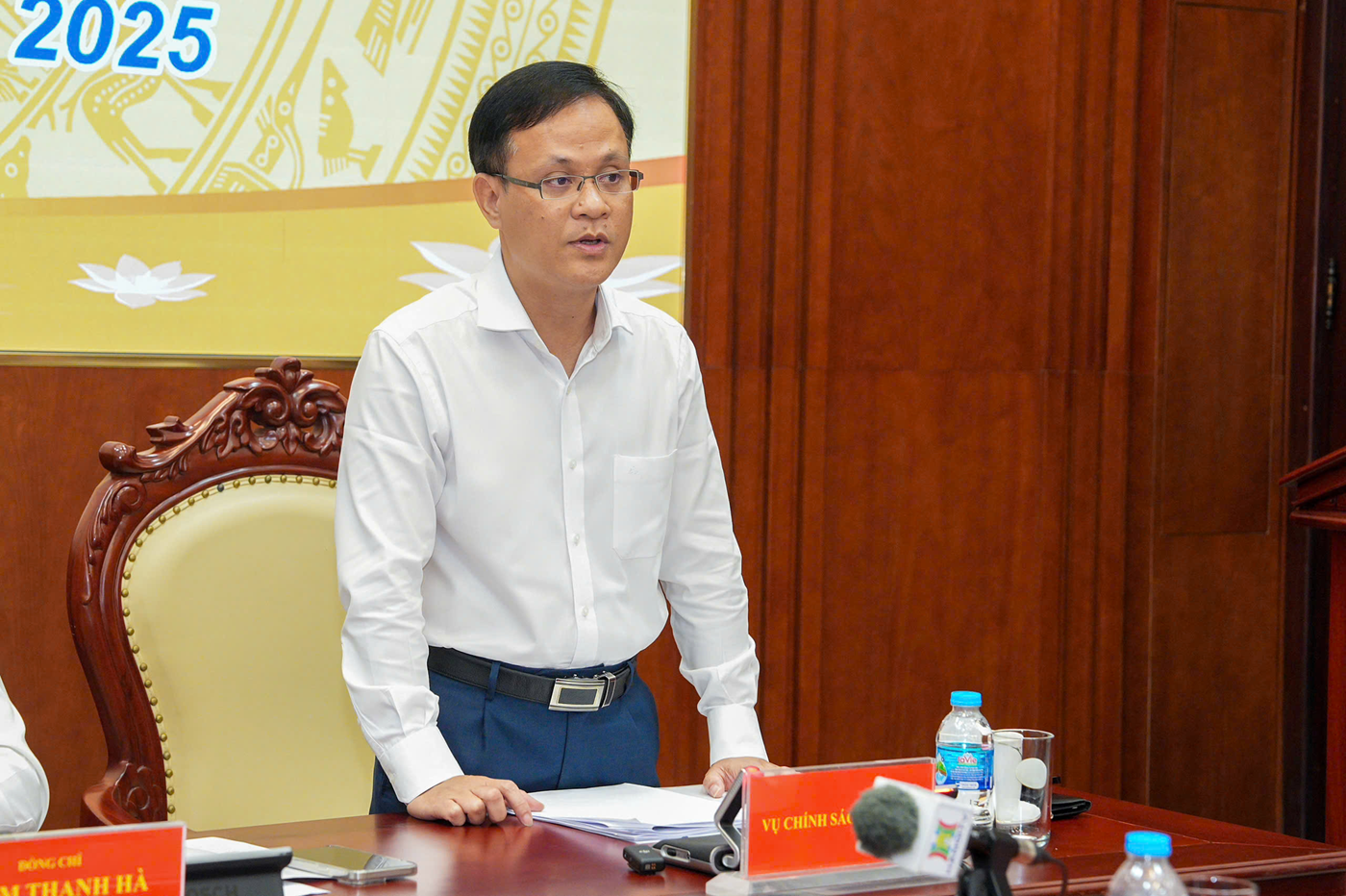This information was revealed by Pham Chi Quang, director of the Monetary Policy Department (State Bank of Vietnam), at a press conference for the second quarter on July 8th.
Since the beginning of the year, the USD Index (DXY), which measures the strength of the US dollar, has fallen by 11%. However, the VND/USD exchange rate has increased by about 3% during the same period, with the selling price at one point reaching a peak of 26,345 dong per USD. The Vietnamese dong has not only depreciated against the USD but also against the Japanese yen and the British pound.
According to Mr. Quang, the DXY decline is due to the rapid policy changes of the Trump administration. However, the dong's depreciation stems from the State Bank's efforts to maintain low interest rates to support businesses and the economy.
"Maintaining low interest rates leads to a negative interest rate differential between the dong and the USD. This affects the balance of foreign currency supply and demand, prompting organizations to switch to more attractive currencies," Mr. Quang explained, adding that Vietnam's balance of payments remains stable.
In addition, according to the director of the Monetary Policy Department, foreign investors' net selling on the stock market has also affected the foreign exchange market. Foreign investors have withdrawn approximately 40 trillion dong in the first half of this year from the stock market.
 |
Pham Chi Quang, director of the monetary policy department, speaks at the State Bank's press conference on July 8th. Photo: State Bank of Vietnam. |
Pham Chi Quang, director of the monetary policy department, speaks at the State Bank's press conference on July 8th. Photo: State Bank of Vietnam.
Mr. Quang predicts that the exchange rate will face further pressure from President Trump's tax policies in the second half of the year. "Vietnam's economy is highly open, with large export markets, especially to the US, so the tax policy will affect the exchange rate and interest rates in the coming period as capital flows between countries," he said.
He added that the US Federal Reserve's (Fed) repeated postponement of interest rate cuts, based on US inflation and labor market data, will impact interest rate and exchange rate fluctuations in Vietnam.
On April 2nd, the US president announced retaliatory tariffs on all trading partners, ranging from 10% to 50%. A week later, he announced a postponement of the high tariffs, temporarily applying only a 10% rate for 90 days, to give countries time to negotiate with the US.
However, on July 7th, Mr. Trump signed a decree imposing new retaliatory tariffs from August 1st. Accordingly, exports from South Korea, Japan, and Malaysia will be subject to a 25% tariff. Indonesia, Bangladesh, Cambodia, and Thailand will face 32% to 36%. The highest rates, 40%, will apply to Laos and Myanmar.
Also at the press conference, Pham Thanh Ha, deputy governor of the State Bank, said that credit to the economy reached over 17.2 trillion dong as of June 30th. This represents a 9.9% increase compared to the end of last year and is the highest since 2022.
The average lending rate for new loans has decreased by 0.64% compared to the end of last year, to 6.24% per year. The State Bank leadership said that the agency continues to closely monitor inflation and adjust credit growth limits to ensure macroeconomic stability, control inflation, and support economic growth.
Trong Hieu












